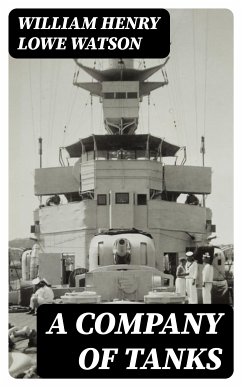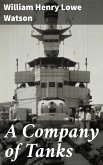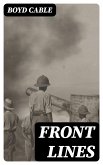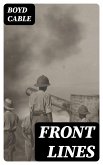In "A Company of Tanks," William Henry Lowe Watson presents a poignant exploration of mechanized warfare during World War I, encapsulated in a narrative that is both gripping and detail-oriented. Watson's literary style is characterized by vivid descriptions and a focus on the psychological impacts of combat, often juxtaposing the raw power of tanks with the fragility of human life. The work is situated within the literary context of war literature, emerging as a significant contribution during a period when narratives around technology and humanity were rapidly evolving, capturing the haunted experiences of soldiers amidst the clamor of the battlefield. As a soldier himself during the conflict, Watson draws from his firsthand experiences, which imbue the text with authenticity and emotional depth. His understanding of the mechanical innovation of tanks, alongside his reflections on camaraderie and loss, serves to humanize the otherwise machine-driven narrative. This dual perspective enriches his portrayal of war, informing readers not just about the technological advancements but also about the ethical and existential dilemmas faced by soldiers. Readers seeking a profound insight into the struggles of modern warfare will find "A Company of Tanks" both engaging and enlightening. Watson's ability to intertwine technology with humanity makes this book a must-read for those interested in the intersections of literature, history, and psychology in wartime narratives.
Dieser Download kann aus rechtlichen Gründen nur mit Rechnungsadresse in A, B, BG, CY, CZ, D, DK, EW, E, FIN, F, GR, H, IRL, I, LT, L, LR, M, NL, PL, P, R, S, SLO, SK ausgeliefert werden.
Hinweis: Dieser Artikel kann nur an eine deutsche Lieferadresse ausgeliefert werden.









